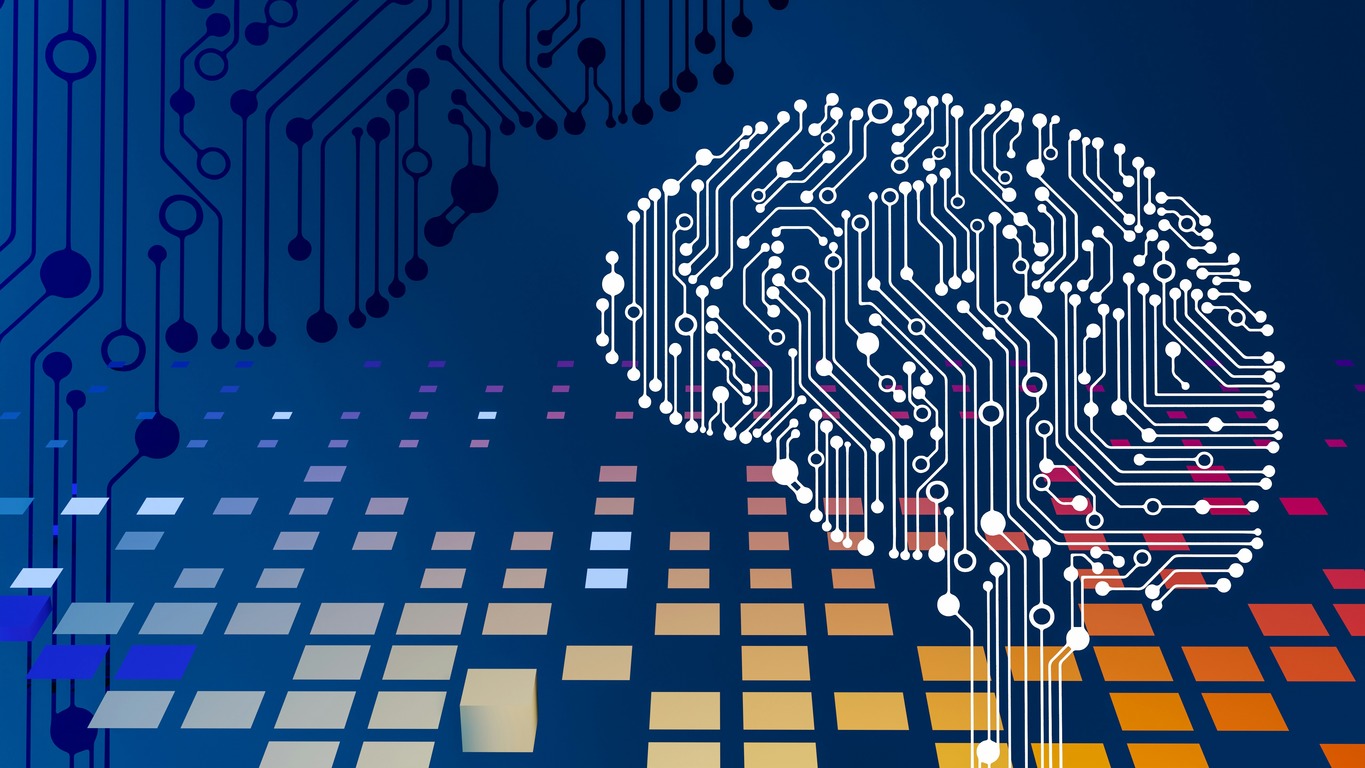AI Orchestration Explained: Meaning and Advantages – Wiserbrand

What is AI Orchestration? Benefits and How It Works
AI orchestration is the process of managing and coordinating multiple AI models, datasets, and automated workflows to deliver actionable insights. It ensures that each component in the AI ecosystem communicates effectively and operates smoothly.
Think of AI orchestration as a conductor leading an orchestra, where each instrument represents an AI model or data source. The conductor ensures all instruments work together in harmony to produce accurate and timely results.
Key Components of AI Orchestration
AI orchestration works by bridging the gaps between the various components of an AI workflow. It ensures that data, models, and processes operate together efficiently, reliably, and consistently. The main components that enable AI workflow orchestration are AI integration, AI automation, and AI management.
AI Integration
AI integration focuses on connecting multiple AI models, datasets, and services so that they can communicate seamlessly. Integration ensures that data flows smoothly between components, models can access the inputs they need, and outputs are shared correctly across systems. It also involves standardizing data formats, connecting APIs, and maintaining compatibility between different AI tools and frameworks. Strong integration allows organizations to combine insights from diverse sources and maintain consistency throughout the AI workflow.
AI Automation
AI automation is the process of automating tasks, workflows, and pipeline processes within an AI system. This includes scheduling tasks, triggering workflows, and ensuring that processes run without manual intervention. Automation improves efficiency, reduces the potential for errors, and allows AI workflows to operate at scale. It also enables organizations to implement complex sequences of tasks that would be difficult or time-consuming to execute manually, ensuring consistent and repeatable results across AI operations.
AI Management
AI management involves monitoring the performance, reliability, and compliance of AI workflows. This includes overseeing model outputs, tracking workflow progress, managing resources, and ensuring adherence to governance and regulatory standards. Management also provides visibility into the health of the AI system, enabling teams to detect issues, optimize workflows, and maintain quality over time. Effective AI management ensures that AI orchestration systems remain robust, scalable, and aligned with business objectives.
How AI Orchestration Works
AI orchestration coordinates the flow of data and tasks in an AI workflow. Steps typically include:
- Data Ingestion – Collecting and integrating data from multiple sources.
- Preprocessing – Cleaning and transforming data for model consumption.
- Model Execution – Running AI models in sequence or in parallel.
- Result Aggregation – Combining outputs from multiple models for final decision-making.
- Delivery – Presenting insights in dashboards, reports, or automated actions.
Understanding the Difference Between AI Orchestration and AI Agents
AI orchestration and AI agents play distinct but complementary roles in AI workflows. AI orchestration focuses on managing and coordinating multiple AI models, data pipelines, and automated processes to ensure that tasks are executed efficiently, reliably, and at scale. It oversees the entire workflow, handling dependencies, scheduling, integration, and monitoring to deliver consistent results. In contrast, AI agents are autonomous systems designed to perform specific tasks, make decisions, or interact with users independently. While agents focus on individual actions, orchestration often integrates multiple agents and models into a unified workflow, ensuring that their outputs are aligned, actionable, and contribute to broader business objectives.
Benefits of AI Orchestration
AI orchestration helps organizations manage complex AI workflows efficiently. Key benefits include:
- Improved Efficiency
- Scalability
- Enhanced Accuracy
- Resource Optimization
- Faster Decision-Making
- Consistency and Reliability
- Adaptability and Flexibility
Improved Efficiency
AI orchestration automates workflows and reduces the need for manual intervention. This allows teams to focus on strategic tasks rather than repetitive operational processes. Automation of scheduling, task execution, and monitoring ensures that AI systems operate consistently and deliver timely insights. Organizations can accelerate their AI projects, shorten time-to-market, and improve overall operational efficiency.
Scalability
As organizations adopt more AI models and increase their data volume, managing these systems manually becomes challenging. AI orchestration provides the ability to scale AI workflows without adding complexity. Whether deploying new models, expanding to additional datasets, or handling higher volumes of transactions, orchestration ensures that processes remain seamless and manageable. This capability is crucial for organizations seeking to grow AI-driven initiatives efficiently.
Enhanced Accuracy
Coordinating multiple models and datasets through orchestration helps ensure higher-quality outputs. By managing dependencies, data flows, and model interactions, orchestration reduces the risk of errors caused by misaligned inputs or inconsistent processing. This results in more reliable predictions, recommendations, and decisions. Enhanced accuracy translates into better customer experiences, more informed business strategies, and reduced operational risk.
Resource Optimization
AI orchestration allows organizations to use computing, storage, and human resources more effectively. Automated workflows reduce the need for manual monitoring and intervention, freeing up teams to focus on higher-value tasks such as model development, analysis, and strategy. Optimizing resource allocation also helps reduce infrastructure costs and improves the efficiency of AI operations, especially when dealing with large-scale deployments.
Faster and Smarter Decision-Making
By integrating outputs from multiple models and automating workflow processes, AI orchestration enables faster and more informed decision-making. Businesses can access comprehensive insights in real time, allowing for immediate actions based on accurate data. This is particularly valuable in high-stakes environments such as financial services, healthcare, and retail, where timely decisions can have a significant impact on outcomes.
Consistency and Reliability
AI orchestration ensures that AI workflows are consistent and repeatable. Standardized processes, automated scheduling, and centralized monitoring reduce the likelihood of errors or deviations, increasing the reliability of AI outputs. Consistent operations build trust in AI systems across the organization and make it easier to scale AI adoption across different business units.
Adaptability and Flexibility
With AI orchestration, organizations can quickly adapt workflows to changing business requirements or integrate new AI models without disrupting existing processes. This flexibility is critical for staying competitive in fast-moving markets and allows businesses to experiment with new models, data sources, or algorithms with minimal operational risk.
Choosing the Right AI Orchestration Platform
When selecting a platform, consider:
- Team Expertise: Some platforms require advanced technical skills, while others are cloud-native and easier to use.
- Integration Needs: Ensure the platform integrates with your existing data and AI infrastructure.
- Scalability: Verify it can handle growing data volumes and additional models.
Cost and Licensing: Evaluate pricing models, cloud costs, and maintenance requirements. - Monitoring and Governance: Check whether the platform provides adequate visibility and control.
Implementation Challenges
AI orchestration offers many benefits but comes with challenges:
- Data Integration: Combining data from multiple sources may require significant preprocessing.
- MLOps Alignment: Orchestration must fit into existing MLOps practices for deployment, monitoring, and testing.
- Scalability: Poorly designed workflows may struggle as model complexity grows.
- Governance and Compliance: Enterprises must ensure AI outputs comply with regulatory standards.
Planning ahead and choosing the right platform helps overcome these challenges.
Conclusion
AI orchestration is essential for businesses looking to scale artificial intelligence effectively. By coordinating multiple AI models, workflows, and data pipelines, it improves efficiency, accuracy, and decision-making. Choosing the right platform, planning for implementation challenges, and staying aware of emerging trends will allow organizations to unlock the full potential of AI orchestration.
Frequently Asked Questions about AI Orchestration
AI orchestration automates workflows and integrates multiple models, allowing small teams to manage AI projects efficiently without heavy manual effort or infrastructure.
Yes, modern AI orchestration platforms often support hybrid setups, enabling organizations to coordinate AI workflows across cloud services and local servers seamlessly.
Finance, retail, healthcare, manufacturing, and logistics benefit greatly by using AI orchestration to streamline workflows, reduce errors, and gain actionable insights.
No, businesses of all sizes can use AI orchestration to improve efficiency, integrate multiple models, and manage automated workflows effectively.
Implementation time varies depending on workflow complexity, the number of models, and existing infrastructure. Simple workflows can be deployed in weeks, while large-scale systems may take months.
Yes, by automating model execution and aggregating results, AI orchestration provides fast, reliable insights that enable timely, data-driven decisions.
No, AI orchestration supports human decision-making by providing accurate, consolidated insights and recommendations, but humans remain essential for strategic judgment.
Security depends on the platform and implementation. Most platforms provide encryption, access controls, and monitoring to ensure data and workflow safety.
Yes, AI orchestration platforms typically connect with databases, APIs, analytics tools, and enterprise software to create seamless workflows.
Most platforms offer dashboards, logging, and alerts to track workflow performance, detect errors, and maintain system reliability over time.
